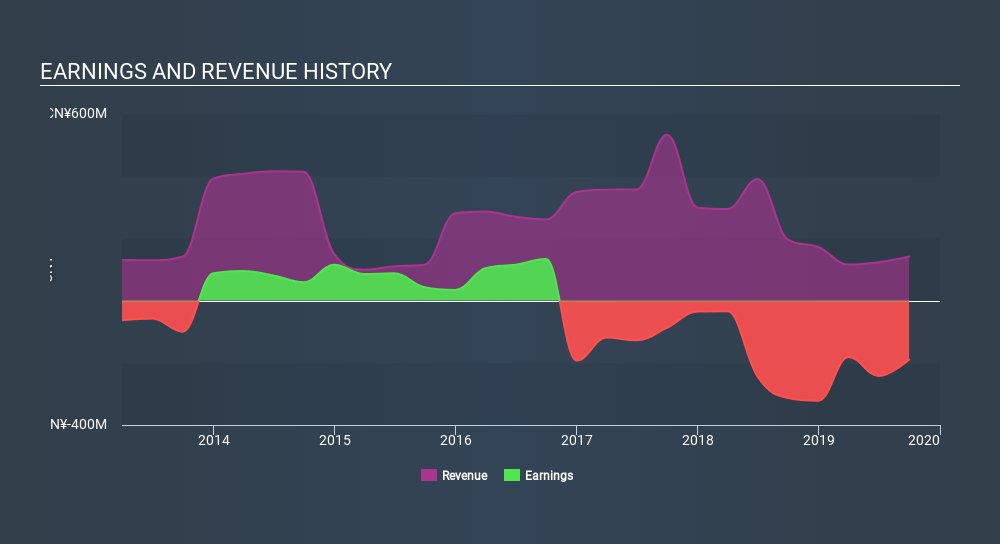What Kind Of Shareholder Appears On The Debao Property Development Ltd.'s (SGX:BTF) Shareholder Register?

A look at the shareholders of Debao Property Development Ltd. (SGX:BTF) can tell us which group is most powerful. Insiders often own a large chunk of younger, smaller, companies while huge companies tend to have institutions as shareholders. Warren Buffett said that he likes 'a business with enduring competitive advantages that is run by able and owner-oriented people'. So it's nice to see some insider ownership, because it may suggest that management is owner-oriented.
Debao Property Development is a smaller company with a market capitalization of S$5.0m, so it may still be flying under the radar of many institutional investors. Our analysis of the ownership of the company, below, shows that institutions are not on the share registry. Let's take a closer look to see what the different types of shareholder can tell us about Debao Property Development.
Check out our latest analysis for Debao Property Development

What Does The Lack Of Institutional Ownership Tell Us About Debao Property Development?
We don't tend to see institutional investors holding stock of companies that are very risky, thinly traded, or very small. Though we do sometimes see large companies without institutions on the register, it's not particularly common.
There are many reasons why a company might not have any institutions on the share registry. It may be hard for institutions to buy large amounts of shares, if liquidity (the amount of shares traded each day) is low. If the company has not needed to raise capital, institutions might lack the opportunity to build a position. It is also possible that fund managers don't own the stock because they aren't convinced it will perform well. Debao Property Development might not have the sort of past performance institutions are looking for, or perhaps they simply have not studied the business closely.

We note that hedge funds don't have a meaningful investment in Debao Property Development. Le Yuan is currently the company's largest shareholder with 52% of shares outstanding, This essentially means that they have extensive influence, if not outright control, over the future of the corporation. With 3.7% and 3.3% of the shares outstanding respectively, Yuzhao Zhong and Mao Zhang are the second and third largest shareholders. Note that they are also Chief Executive Officer and Member of the Board of Directors, respectively, meaning that the company's top shareholders are insiders.
While studying institutional ownership for a company can add value to your research, It is also a good practice to research analyst recommendations to get a deeper understand of a stock's expected performance. As far I can tell there isn't analyst coverage of the company, so it is probably flying under the radar.
Insider Ownership Of Debao Property Development
The definition of company insiders can be subjective, and does vary between jurisdictions. Our data reflects individual insiders, capturing board members at the very least. The company management answer to the board; and the latter should represent the interests of shareholders. Notably, sometimes top-level managers are on the board, themselves.
Insider ownership is positive when it signals leadership are thinking like the true owners of the company. However, high insider ownership can also give immense power to a small group within the company. This can be negative in some circumstances.
Our most recent data indicates that insiders own the majority of Debao Property Development Ltd.. This means they can collectively make decisions for the company. So they have a S$3.4m stake in this S$5.0m business. Ownership is clearly an important issue when it comes to investment selection. But ultimately, many risks exist within the business itself, rather than its shareholders. For example, we've discovered 5 warning signs for Debao Property Development (of which 4 are major) which any shareholder or potential investor should be aware of.
General Public Ownership
The general public, with a 33% stake in the company, will not easily be ignored. While this size of ownership may not be enough to sway a policy decision in their favour, they can still make a collective impact on company policies.
Next Steps:
I find it very interesting to look at who exactly owns a company. But to truly gain insight, we need to consider other information, too.
I like to dive deeper into how a company has performed in the past. You can access this interactive graph of past earnings, revenue and cash flow for free.
If you would prefer check out another company -- one with potentially superior financials -- then do not miss this free list of interesting companies, backed by strong financial data.
NB: Figures in this article are calculated using data from the last twelve months, which refer to the 12-month period ending on the last date of the month the financial statement is dated. This may not be consistent with full year annual report figures.
If you spot an error that warrants correction, please contact the editor at editorial-team@simplywallst.com. This article by Simply Wall St is general in nature. It does not constitute a recommendation to buy or sell any stock, and does not take account of your objectives, or your financial situation. Simply Wall St has no position in the stocks mentioned.
We aim to bring you long-term focused research analysis driven by fundamental data. Note that our analysis may not factor in the latest price-sensitive company announcements or qualitative material. Thank you for reading.
Market Insights
Community Narratives



